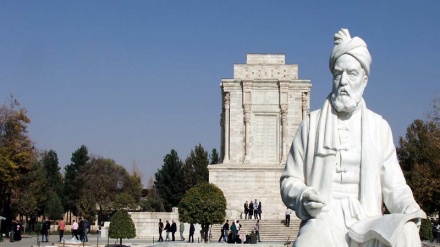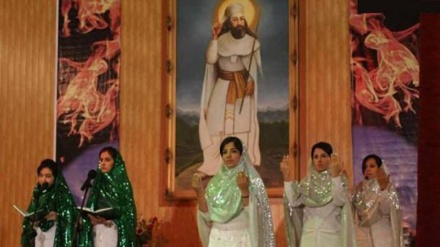Iran, land of various ethnicities (25)
Today we are going to discuss songs and songwriting in Iran. Hope you’ll enjoy it.
Song and songwriting has a long record in the Iranian culture. Songs usually mirror the inner sentiments and emotions in a musical way. Songs have a significant status among Iranian ethnicities. Some of the important categories of songs include: songs of job and work time, songs of rainfall, songs of childbirth, songs of death, childish songs, and wedding songs. With the development of civilization and changes that took place in the way of life in various regions, songs have altered, too. The bond of old songs with the new ones has somehow been undermined.
Song means a short composed piece whose length or shortness is not important. The first songs in Farsi language should be traced back to the poetry of pre-Islamic era. Undoubtedly, songs have their roots in poems. The renowned Iranian literary figure, Dr. Shafie Kadkani says, “Poetry is an event which occurs on the tongue.” Nazar Qabani, also, says, “Poetry is the expectation of the unexpected.”
We can combine these two statements in one sentence and say, “Poetry is an unexpected event.”
Perhaps, this unexpected event is best manifested in the form of song. A poetical song is quite natural. The structure of a song is derived from the colloquial language of the ordinary people and is full of the features of folk literature.
Separation of the language of poetry from the main body of language has taken place during the course of time. This is clearer in poetry. Perhaps song has the highest number of audience in poetry. Song is a poetical discourse but it is free from the grandiloquent words and philosophical expressions. Song is mixed with the Iranian culture. The most beautiful and emotional works of various ethnicities, especially those works which pertain to the notables of an ethnicity, can be found in songs. In the past, songs used to be composed in a different form but today they are composed in the language of the laymen. This has somehow changed the status of song among people but it has lost its content and profundity to some extent.
Now let us listen to a beautiful song in Gilaki dialect. This song was composed for the Iranian hero of Gilan province, Mirza Kuchak Jangali who spent most of his life struggling against the illiterate dictator, Reza Khan Pahlavi and the British masters of this potentate. First you’ll listen the original song in Gilaki dialect and then the English translation of it.
How much do you reside in the jungle for the people?
Are you not tired my dear, Mirza Kuchak Khan?
God knows that I cannot sleep for the fear of enemy.
My heart is suspending on you o Mirza Kuchak Khan.
Why don’t you come sooner, why don’t you come faster?
You have left lonely Gilan in ruins, o Mirza Kuchak Khan.
Come my soul and spirit, may I be sacrificed to your beard
May I be sacrificed to your blue eyes, don’t shut your eyes Mirza Kuchak Khan
We the children of Rasht will be your sacrifice
And we offer our souls under your feet.
RM/ME


